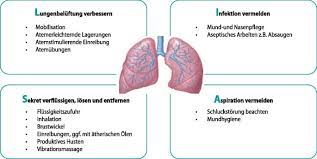Eps 2020: Pneumonie Prophylaxe
— The too lazy to register an account podcast
In this 10-minute podcast, the topic of discussion is pneumonia prevention. The host starts by explaining that pneumonia is a serious and potentially life-threatening infection that affects the lungs. They mention that even though anyone can develop pneumonia, certain groups, such as the elderly and individuals with weakened immune systems, are more susceptible. The podcast emphasizes the importance of taking preventive measures to reduce the risk of pneumonia. One key strategy is getting vaccinated against certain strains of bacteria and viruses that can cause pneumonia. The host explains that vaccines like the pneumococcal vaccine and annual flu shot can significantly lower the chances of developing pneumonia. Additionally, the host mentions other preventive measures people can take. They highlight the significance of practicing good hygiene, such as regular handwashing and avoiding touching the face, as respiratory viruses can easily spread through hands. They also assert the importance of staying away from people with respiratory infections to minimize exposure. The host advises avoiding excessive smoking and alcohol consumption, as these can weaken the immune system and make individuals more susceptible to pneumonia. The podcast also emphasizes the role of maintaining a healthy lifestyle in preventing pneumonia. The host suggests eating a balanced diet rich in fruits and vegetables, exercising regularly, and getting enough sleep as essential ways to strengthen the immune system and overall health. Overall, the podcast provides a concise summary of pneumonia prevention methods, highlighting the significance of vaccines, good hygiene practices, and healthy lifestyle habits in reducing the risk of pneumonia.
| Seed data: | Link 1 |
|---|---|
| Host image: | StyleGAN neural net |
| Content creation: | GPT-3.5, |
Host

Ray Hall
Podcast Content
One of the most effective ways to prevent pneumonia is through vaccination. Vaccines are designed to stimulate the immune system and protect the body against specific pathogens. The pneumococcal vaccine, for example, protects against the most common cause of bacterial pneumonia, Streptococcus pneumoniae. It is recommended for individuals of all ages, but particularly for those at higher risk, such as the elderly, young children, and individuals with certain chronic diseases.
Another important aspect of pneumonia prevention is practicing good hygiene. This includes regular handwashing with soap and water or using alcohol-based hand sanitizers, especially before eating or touching the face. Avoiding close contact with individuals who have respiratory infections, such as the common cold or flu, is also advisable. Covering the mouth and nose with a tissue or the elbow when coughing or sneezing is essential to prevent the spread of respiratory droplets that can harbor pneumonia-causing pathogens.
Maintaining a healthy lifestyle can also significantly reduce the risk of contracting pneumonia. Eating a balanced diet rich in fruits, vegetables, whole grains, and lean proteins helps keep the immune system strong. Regular exercise not only improves overall health but also enhances the body's ability to fight off infections. Avoiding smoking and limiting alcohol consumption are also important, as they weaken the immune system and make individuals more susceptible to respiratory infections.
For those at high risk of pneumonia, such as those with chronic illnesses or weakened immune systems, additional preventive measures may be necessary. These can include the use of antibiotics or antiviral medications prophylactically, as recommended by healthcare professionals. It is crucial for individuals in these categories to regularly consult with their healthcare providers to determine the most appropriate prevention strategies for their specific circumstances.
Pneumonia can be a life-threatening condition, especially for vulnerable populations. By taking proactive measures to prevent pneumonia, such as vaccination, practicing good hygiene, maintaining a healthy lifestyle, and seeking appropriate medical advice when necessary, individuals can significantly reduce their risk of developing this potentially dangerous illness. Remember, prevention is always better than cure, and when it comes to pneumonia, it could be a matter of life and death.
